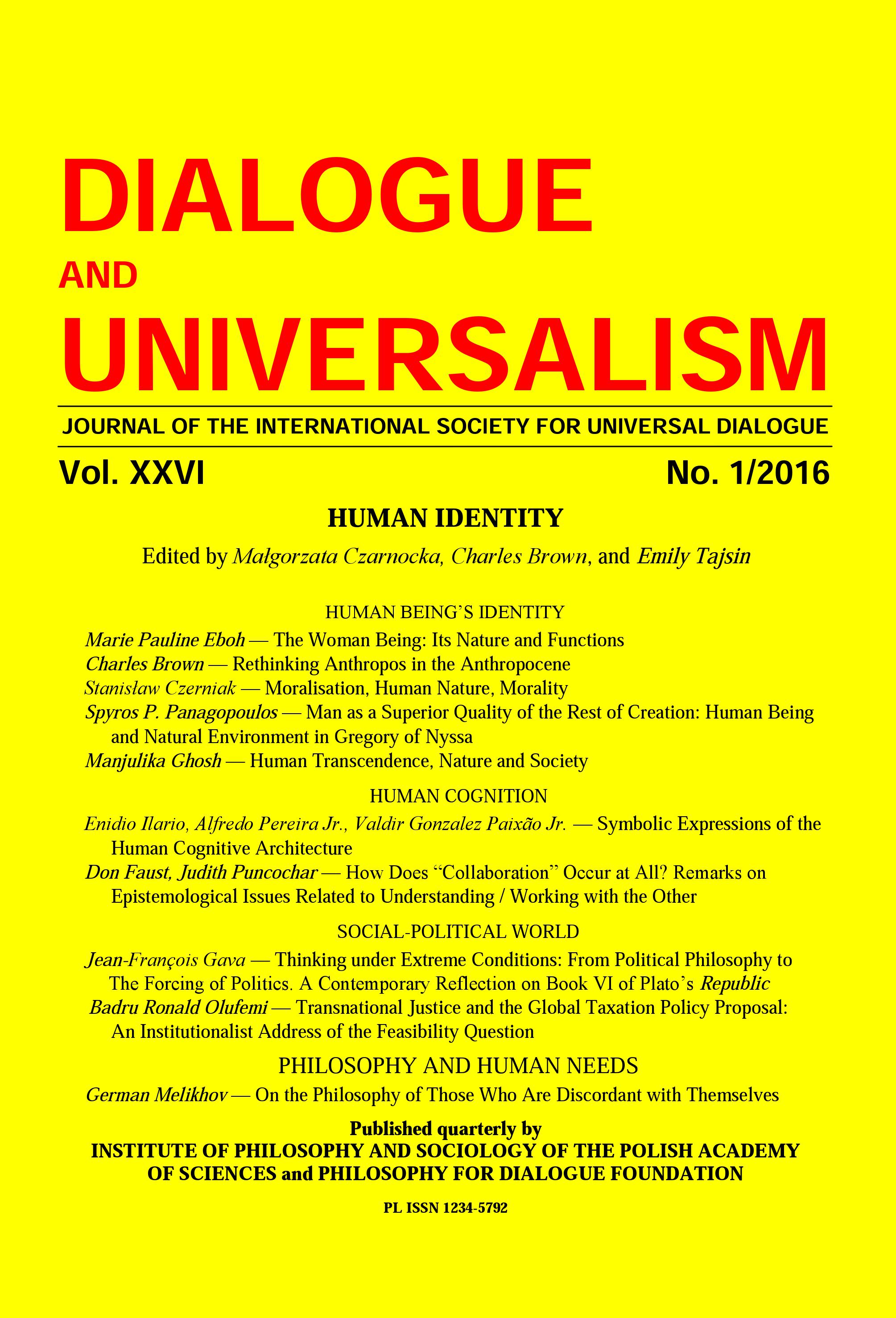HUMAN TRANSCENDENCE, NATURE AND SOCIETY
HUMAN TRANSCENDENCE, NATURE AND SOCIETY
Author(s): Manjulika GhoshSubject(s): Philosophy
Published by: Instytut Filozofii i Socjologii Polskiej Akademii Nauk
Keywords: human transcendence; man; Friedrich Nietzsche; Rabindranath Tagore
Summary/Abstract: Man is a being-in–the-world and at the same time he defies the dictates of nature; he is a being-off-the-world. Man tries to transcend the unconditionally given nature through invention, symbolization, representation and imagination. Man not only be-longs to nature but also intervenes in the processes of nature. Man is duplex. This du-plicity is also species-specific to man and can be termed as human transcendence. This implies not only the transcendence of external nature but also self-transcendence, i.e. transcendence of his ego-self. Self-transcendence not only makes morality possible but is also a the basis of formation of society. Further, it brings about a change in man’s attitude to nature. Nature is not seen purely as an object of utility, but also as a power, a force, having a telos or an end. In clarifying what we want to say, we study the posi-tions of two figures, Friedrich Nietzsche and Rabindranath Tagore. This paper attempts to address the idea of man’s self-transcendence and its bearing on harmonious living with other individuals and with nature.
Journal: Dialogue and Universalism
- Issue Year: 2016
- Issue No: 1
- Page Range: 91-98
- Page Count: 8
- Language: English
- Content File-PDF

